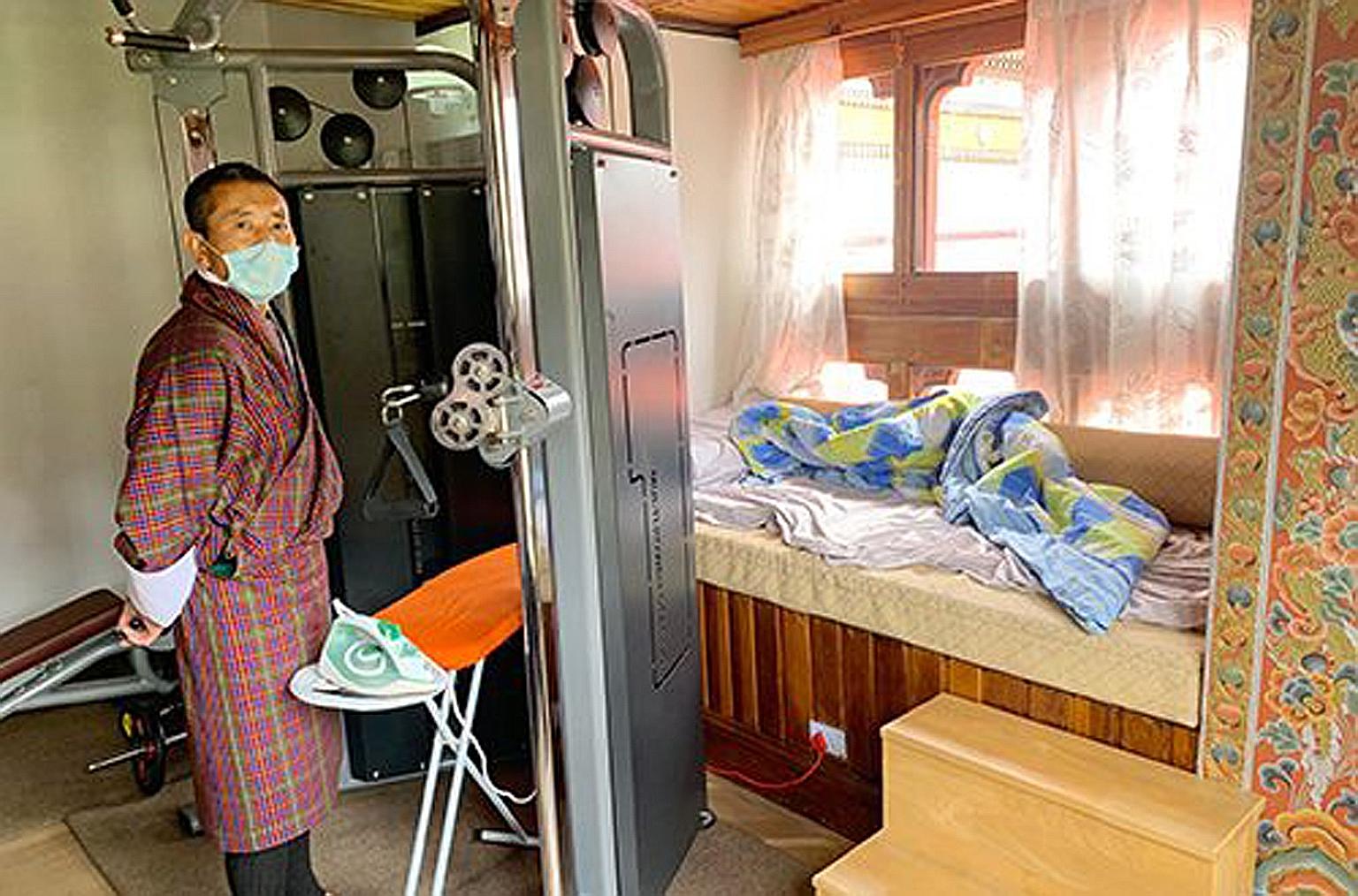Coronavirus Vaccination
Relatively unscathed Bhutan to start vaccinations
Sign up now: Get ST's newsletters delivered to your inbox

Bhutan's Prime Minister Lotay Tshering, a trained surgeon, spent the first lockdown in August last year in his office, where he slept on a makeshift bed.
PHOTO: THE BHUTANESE
Debarshi Dasgupta India Correspondent In Kolkata , Debarshi Dasgupta
Follow topic:
Bhutan was the first country to receive a goodwill consignment of 150,000 doses of Covid-19 vaccine from India in January.
But the authorities in the country of around 750,000 people said it will start vaccinating its citizens this month, once it has enough doses for all those eligible.
Meanwhile, it wants to look out for potential adverse effects of Covid-19 vaccines from roll-outs in other countries.
Bhutan is an unlikely success story in the Covid-19 fight, given its meagre financial and healthcare resources. It has to date 867 cases in total, of which four were active as at last Wednesday. The country recorded its only Covid-19 death in January, around 10 months after it detected its first positive case.
Bhutan began monitoring visitors for any signs of respiratory illness at the country's only international airport in Paro in January last year, before the World Health Organisation (WHO) declared Covid-19 a global pandemic.
And when a 76-year-old American tourist, arriving from India, tested positive for the coronavirus in capital Thimphu on the night of March 5 - the country's first case - Bhutan immediately banned the entry of tourists.
Later in the month, those returning from abroad were made to serve a 14-day quarantine, subsequently extended to 21 days.
Bhutan has also kept its borders sealed since - a tough decision in a country where tourism is a key driver for economic growth.
It has enforced lockdowns twice, set up dedicated flu clinics and intensified testing across the country. As at last Wednesday, Bhutan has conducted 520,613 tests.
The country's prime minister, health and foreign ministers, all of whom have extensive background in healthcare, have deployed their knowledge in the nation's fight against the pandemic.
Mr Tenzing Lamsang, editor of The Bhutanese newspaper, flagged his country's social cohesion as an asset that has enabled it to handle the pandemic more efficiently than many richer nations.
"When it comes to the ability to come together and face a threat and operate together as one team, what I call social capital, in that, Bhutan has one of the highest social capitals in the world," he told The Straits Times. "If there is one thing that Covid-19 has shown, it is that it is not enough just to throw money and drugs at this problem. You have to have societal responsibility that goes down to every individual, in this case every Bhutanese," he added.
But the coronavirus came back with a surge in December last year, leading to an outbreak far worse than the one in August.
A second lockdown ensued and the country recorded more than 400 cases in December last year and January this year alone.
Dr Rui Paulo de Jesus, the WHO Representative to Bhutan, told The Straits Times the official response during the second outbreak was more coordinated.
"Bhutan was quick to adapt its existing interventions and adopt newer interventions to better deal with the evolving pandemic," he said. One member from every household in Thimphu, a hot spot, was tested twice before the second lockdown was lifted.
Health Minister Dechen Wangmo, who has a master's degree in public health from Yale, told the Kuensel newspaper last month that the country will further ramp up its surveillance with a combination of passive and active measures.

